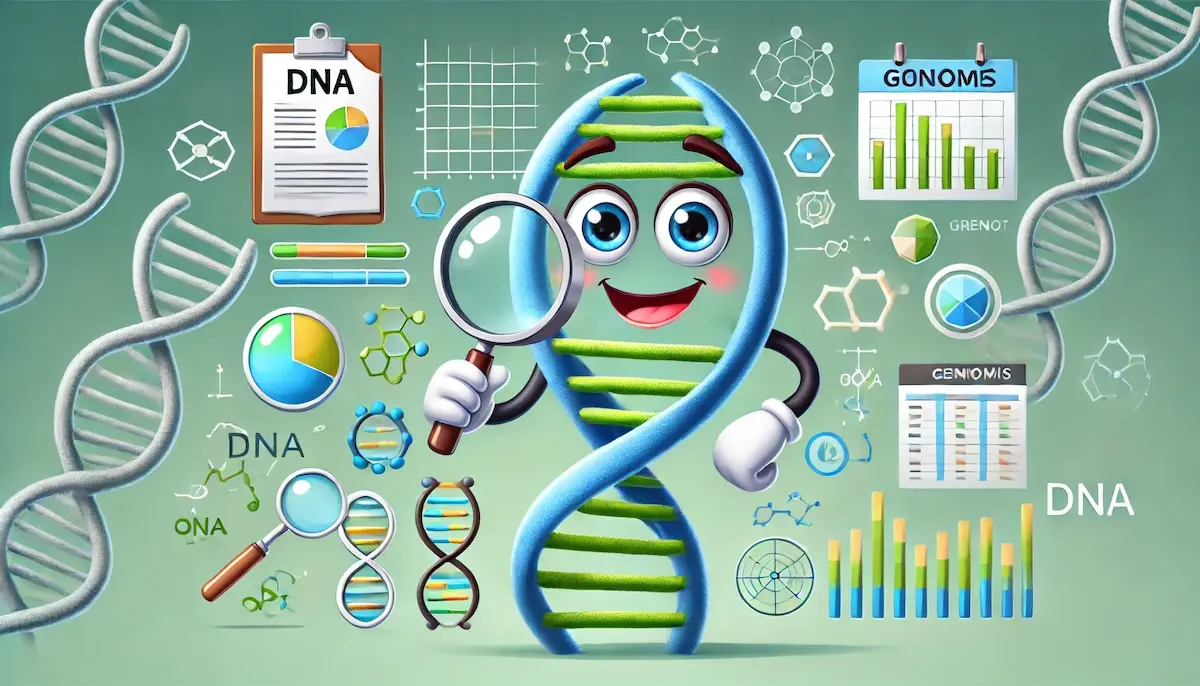Genomics is the study of genomes, which are the complete set of DNA, including all of its genes, in an organism. This field encompasses the sequencing, analysis, and comparison of genomes to understand the structure, function, evolution, and mapping of genes. Genomics plays a crucial role in numerous scientific and medical advancements, providing insights into everything from evolutionary biology to personalized medicine.
Key Concepts in Genomics
DNA Sequencing
DNA sequencing is the process of determining the exact order of nucleotides within a DNA molecule. This technology has advanced rapidly, from the initial sequencing of small DNA fragments to the current ability to sequence entire genomes quickly and affordably. Techniques such as next-generation sequencing (NGS) have revolutionized genomics by producing large amounts of data efficiently.
Genome Mapping
Genome mapping involves identifying the locations of genes and other significant features within a genome. Maps can be physical, showing the physical locations of genes on chromosomes, or genetic, indicating the relative positions of genes based on genetic linkage data. Genome mapping is crucial for understanding the structure and function of genomes and for identifying genes associated with diseases.
Functional Genomics
Functional genomics focuses on understanding the roles and interactions of genes and proteins within a genome. This involves studying gene expression, regulation, and interaction networks to uncover the complex mechanisms that govern cellular functions and organismal development.
Comparative Genomics
Comparative genomics compares the genomes of different species to identify similarities and differences. This approach helps in understanding evolutionary relationships, identifying conserved genes and regulatory elements, and discovering the genetic basis of species-specific traits.
Epigenomics
Epigenomics studies the chemical modifications to DNA and histone proteins that regulate gene expression without altering the underlying DNA sequence. Epigenetic changes can be influenced by environmental factors and play a significant role in development, disease, and adaptation.
Applications of Genomics
Medicine
Genomics is transforming medicine through the development of personalized medicine, where treatments and prevention strategies are tailored to an individual’s genetic makeup. Genetic testing can identify predispositions to certain diseases, enabling early interventions and personalized treatment plans. Pharmacogenomics studies how genes affect an individual’s response to drugs, leading to more effective and safer medications.
Agriculture
In agriculture, genomics is used to enhance crop and livestock breeding. By identifying genes associated with desirable traits, such as disease resistance, yield, and nutritional value, scientists can develop genetically improved varieties and breeds. Genomics also helps in understanding the genetic basis of adaptation to different environments, aiding in the development of crops that can thrive in changing climates.
Evolutionary Biology
Genomics provides insights into the evolutionary history of organisms by comparing genomes across different species. This helps in understanding the genetic basis of evolution, identifying conserved and divergent genes, and reconstructing phylogenetic relationships.
Biotechnology
Biotechnological applications of genomics include the development of genetically modified organisms (GMOs), synthetic biology, and bioengineering. Genomic data enables the design and creation of new biological systems and the modification of existing organisms for various purposes, such as producing biofuels, pharmaceuticals, and industrial enzymes.
Environmental Science
Environmental genomics, or metagenomics, studies the genetic material recovered directly from environmental samples. This approach helps in understanding microbial diversity, ecosystem functions, and the impacts of environmental changes on biological communities. It also aids in bioremediation efforts by identifying microbes capable of degrading pollutants.
Challenges in Genomics
Data Management
The vast amount of data generated by genomic studies presents significant challenges in storage, management, and analysis. Efficient data management systems and computational tools are essential to handle this data deluge and extract meaningful insights.
Ethical and Privacy Concerns
Genomic data contains sensitive information that can impact an individual’s privacy and raise ethical issues. Ensuring data security, obtaining informed consent, and addressing potential misuse of genetic information are critical concerns in genomics research.
Interpretation of Genetic Data
Interpreting the functional significance of genetic variants is complex and often uncertain. Many genetic variants have unknown or unclear impacts on health and disease, making it challenging to translate genomic data into clinical practice.
Access and Equity
Ensuring equitable access to genomic technologies and personalized medicine is a significant challenge. There is a need to address disparities in access to genomic testing and therapies, particularly in underserved and low-resource communities.
The Future of Genomics
The future of genomics holds tremendous potential for scientific and medical breakthroughs. Advances in sequencing technologies, bioinformatics, and integrative approaches will continue to drive discoveries in genomics. Key trends include:
- Single-Cell Genomics: Techniques to sequence individual cells will provide deeper insights into cellular heterogeneity and functions, particularly in complex tissues and tumors.
- CRISPR and Gene Editing: Gene editing technologies like CRISPR will enable precise modifications of genomes, offering potential treatments for genetic disorders and new avenues for research.
- Integrative Omics: Combining genomics with other omics fields, such as transcriptomics, proteomics, and metabolomics, will provide a more comprehensive understanding of biological systems and their regulation.
- Population Genomics: Large-scale genomic studies across diverse populations will enhance our understanding of human genetic diversity and its implications for health and disease.
Blockfine thanks you for reading and hopes you found this article helpful.
